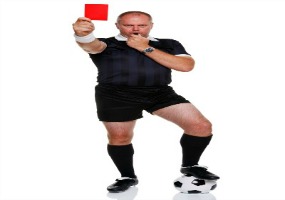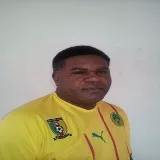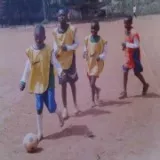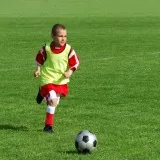Home | What's New | Free
Basic Rules of Soccer
Simplified 17 Rules
A great player is the one who knows the basic rules of soccer. They help him to play wisely and avoid mistake during soccer practices and games. It is therefore essential for each young player to learn these rules of soccer first.
There are 17 basic rules of soccer called “Laws of Game”. FIFA (Federation Internationale of Football Association) is in charge of enforcing their application worldwide. When these rules are modified by any organization, league, country, or competition, they become “Local rules of soccer”.
When a player enters the pitch, what basic rules of soccer must he know first? Here is a quick look of these rules through easy to remember questions.
Rule 1: Field of play. You have two standards soccer field of play. The big size is 120 x 90 meters (130 x 90 yards). The small size is 90 x 45 meters (100 x 50 yards). Local rules enforce small sizes per age level.
Rule 2: The ball. It should be spherical made of leather or suitable material. The standard ball size is 5. This ball size is used for international official games. The limited age to use ball size 5 is age 13. Ball size 4 is used for players between ages 9 and 12. Ball size 3 is used for players between ages 6 and 8.
Rule 3: Number of players. Each team should have eleven (11) players on field. A goalie is one of them. Know that only three substitutions are permitted during an official soccer game. This number changes when it comes to indoor soccer.
Rule 4: Players’ equipment. The two teams wear different colors during a soccer game. Players on the field wear jersey with numbers, shorts, socks, shin guards, and footwear. The goalkeeper wears a different uniform from his teammates with gloves.
Rule 5: A referee. He is the enforcer of the basic rules of soccer during the game. He makes sure all players respect the rules. If a player breaks any basic rule of soccer during the game, the referee uses either a verbal warning, yellow or red cards, according the nature of the offense.
Rule 6: Assistant referees. There are two assistant referees for a soccer game. They advise the referee about an offense committed out of his view. The final decision belongs to the referee, not to the assistants for any offense occurs during the game.
Rule 7: Duration of the match. A standard soccer match lasts 90 minutes. There are two equal periods of 45 minutes. A break period of 15 minutes is required between the two periods. The duration of the match can change with local rules.
Rule 8: The start and restart of the play. A kick off is a way of starting and restarting a soccer game. It happens at the start of the first and second periods of the match. A kick off is used after a goal was scored by a team. It also happens during extra period time. A throw-in is a method of restarting play.
Rule 9: The ball in and out of play. The ball is out of the field of play if it crosses the goal line or touch line on the ground or by the air. The ball is also out of play when the referee stops the play. Otherwise, the ball is in play all the time.
Rule 10: The method of scoring. A team scores a goal when the whole circumference of the ball crosses the goal line without any offense of the rules of soccer. The ball should cross the goalposts and under the crossbar. A goal can be scored even when the ball crosses the goal line through the ground or the air. The team that scores a greater number of goals wins the match.
Rule 11: Offside position. A player is offside position when he is closer to his opponents' goal line than both the ball and the second-last opponent. He is not offside position if he is in the same line with his opponents.
Rule 12: Fouls and misconduct. They are reckless, careless, and excessive use of force against an opponent. They result to a direct free kick when a player kicks, jumps, trips, charges, strikes, pushes, tackles, holds, spits, or handles the ball deliberately against an opponent. A direct free kick is taken from where the offense occurred.
They result to an indirect free kick when a goalkeeper or a player commits any offense within is own penalty area. Therefore, a penalty kick is awarded to opponent team.
Rule 13: Free kick. There are two types of free kick. Direct free kick happens according the offense and can be kicked direct to into the opponent goal. Indirect free kick is a two movement’s shout. They can’t be kick directly to the opponent goal. The ball must be played by a second player before going to the opponent goal.
Rule 14: Penalty kick. It is awarded when the defense commits a foul inside its own penalty area and while the ball is play. All offenses resulting to a direct free kick lead to a penalty kick. During the penalty kick, all players should be out of the penalty box.
Rule 15: Thrown-in. It is a method of restarting the play. A goal can’t be score directly from it. It happens when a player last touches the ball before it goes out of the field of play. The opposition team gets the thrown-in.
To throw-in the ball, a player should keep his feet on the ground and out of touch line, use both hands, and throw the ball from behind over his head. This is the only time players in the field can use their hands to touch the ball.
Rule 16: Goal kick. It is a method of restarting a soccer match when the offensive team sends the ball out of the goal line or end line. A goal may be scored directly from a goal kick, but only to the opponent team.
Rule 17: Corner kick. It is awarded to the offensive team when the defensive team was last touches the ball before it crosses the goal line or end line. It is kicked at the nearest corner.
Soccer requires smart thinking. Basic rules of soccer are a big part of that thinking. It is crucial for a young player to master these basic rules of soccer. A player who knows the basic rules of soccer can avoid mistakes during a soccer game.
Go back to top of Rules of Soccer page
You are invited to visit the home page of Youth Soccer
FREE Report!
Because you need to know how to get discovered and advance your soccer... please accept this FREE gift as my thank you for signing up below.
Best,
Val
Your Host
Hi, I'm Valentin Bikibili. Your Host on All-youth-soccer-training.com
Learn About Me...












New! Comments
Have your say about what you just read! Leave me a comment in the box below.